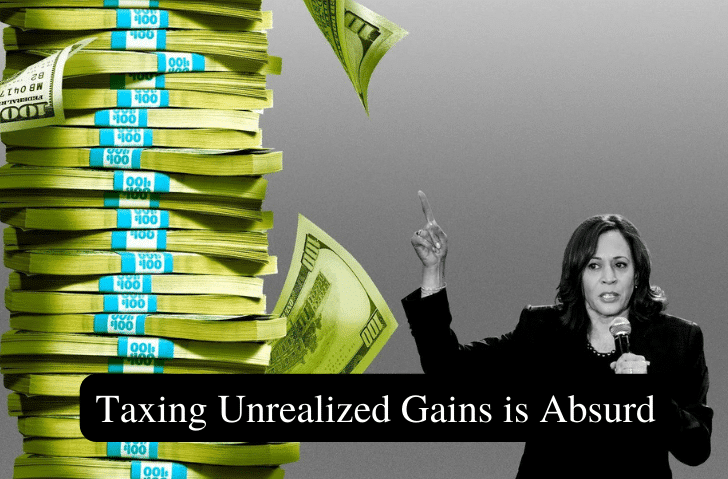There has been increasing talk of taxing unrealized capital gains, especially targeting individuals with assets over $100 million. While this might sound like a good way to ensure the ultra-wealthy pay their “fair share,” there are significant downsides to this approach. Lets explore three reasons why taxing unrealized gains is wrong and how it could eventually affect everyday investors if the policy trickles down.
Reason 1: Unrealized Gains Are Not Real Income
Unrealized capital gains refer to the increase in value of an asset that hasn’t been sold. Essentially, these are “paper profits” because the individual hasn’t actually realized any income from the increase. Taxing these gains would mean taxing money that hasn’t been received, which create significant problems.
For example, let’s say someone holds stock in a company, and that stock has increased in value over the past year. If they are required to pay taxes on that increase, even though they haven’t sold the stock, they could end up with a huge tax bill. Worse yet, if the stock’s value drops the following year, they may be stuck paying taxes on a profit they never fully captured.
This concept of taxing on “potential” income is a dangerous precedent to set. Over time, it could be expanded to other forms of assets, like homes or retirement accounts, which fluctuate in value over time but aren’t realized as income until a sale occurs.
Reason 2: Taxing Unrealized Gains Could Force Asset Sales
One significant issue with taxing unrealized gains is the liquidity problem it creates. High-net-worth individuals often own illiquid assets, like real estate or stakes in private businesses, that aren’t easily converted into cash. If these individuals are taxed on unrealized gains, they might be forced to sell portions of their holdings to cover the tax bill, even if they don’t want to.
This is particularly concerning when the policy would be applied to individuals with a $100 million threshold. While that may seem like a huge amount, the reality is that much of that wealth could be tied up in non-liquid assets. Being forced to sell these assets to pay taxes could lead to fire sales, depressed asset values, and unintended market distortions.
Over time, as the tax base expands, smaller investors may also face this problem. If the threshold for taxing unrealized gains drops, many investors could be forced into a similar position of having to sell long-term investments to cover tax liabilities.
Reason 3: The Trickle-Down Effect
While current proposals aim to tax only those with $100 million or more in assets, history shows that tax policies often expand. For example, the Alternative Minimum Tax (AMT) was originally designed to target the wealthiest taxpayers but now impacts middle-income families. The same thing could happen with a tax on unrealized gains.
Once the infrastructure is in place to tax unrealized gains, the government could easily lower the threshold over time. The initial focus on billionaires and multi-millionaires may shift, potentially impacting small business owners, real estate investors, and even middle-class individuals with retirement accounts.
This trickle-down effect could create uncertainty for average investors, forcing them to navigate the complexities of a tax system that now charges them on income they haven’t realized. The result could be fewer people willing to invest in the stock market, real estate, or entrepreneurial ventures, all of which are key drivers of economic growth.
Taxing unrealized capital gains may seem like a way to capture more revenue from the ultra-wealthy, but it sets a dangerous precedent. These taxes would be applied to “paper profits,” forcing individuals to pay taxes on assets that might later decrease in value. Additionally, taxing unrealized gains could lead to liquidity issues, compelling the sale of assets that weren’t intended for sale. Finally, there’s the risk of the policy eventually trickling down to affect the broader population, including everyday investors and retirees. In the long run, this policy could undermine long-term investment and economic stability.
Taxes are the your largest expense in retirement. Let’s discuss a tax free retirement.

